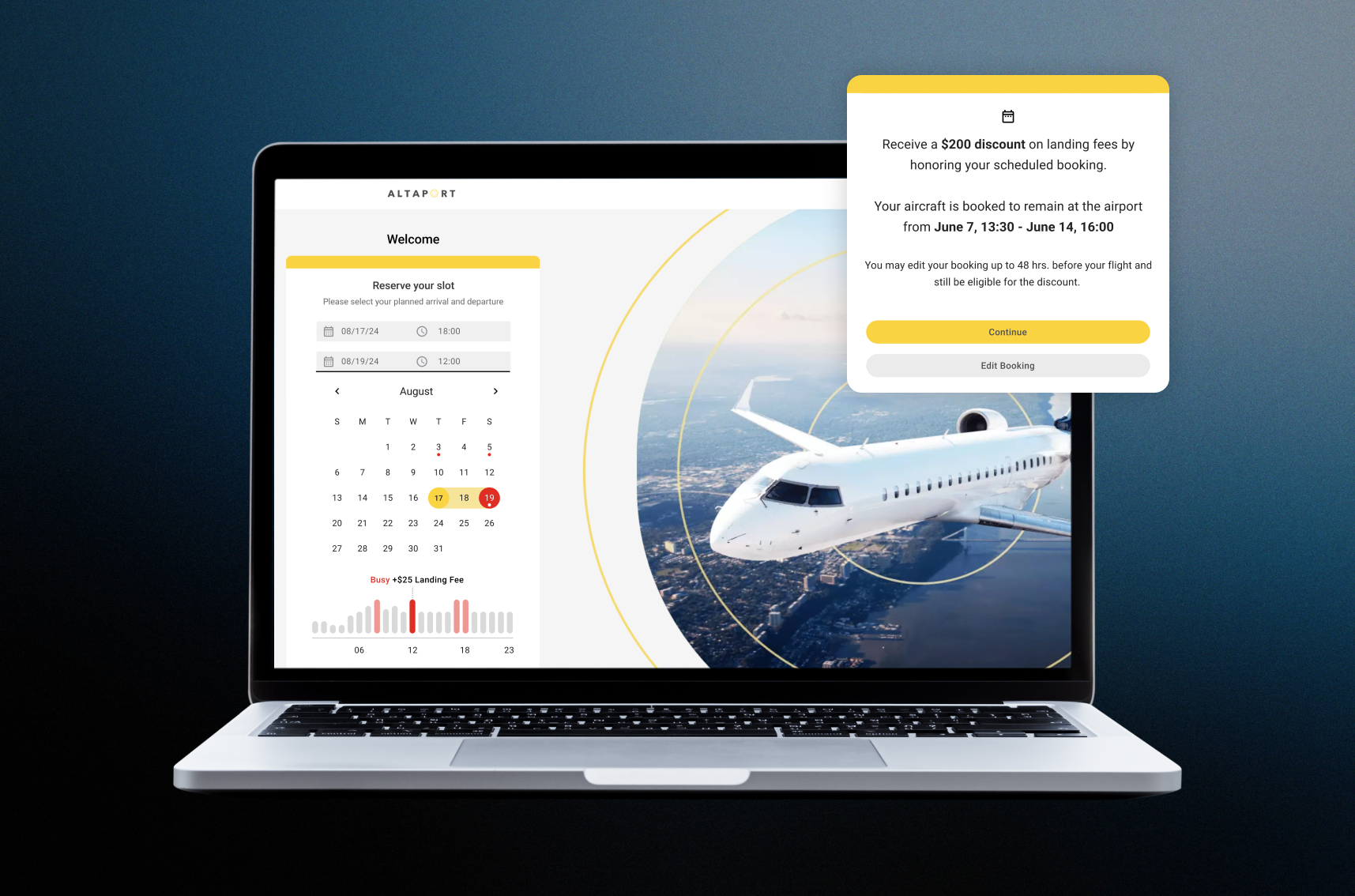
Available now: Altaport’s Special Event & Space-Constrained Reservations Module
Every airport has its “stress days.” Game day. A city-wide festival. A major concert. Formula 1. UN General Assembly. Even a homecoming weekend in a college town can overwhelm a smaller field. Traffic spikes. Ramps become gridlocked. Staff sprints. And the phone rings off the hook.
For years, the default response has been to post a notice: Reservations required. Special event fees apply. Call or email to schedule. Airports then juggle voicemails, spreadsheets and inboxes, collect credit cards over the phone or after arrival, and hope operators arrive roughly when they said they would or even at all.
That model no longer works.
“Airports started charging special-event fees to cover staffing and capacity, but the process stayed manual,” says Matt Broffman, CEO at Altaport. “You can’t spread demand or guarantee revenue if everything runs through phone calls and forms.”
This post outlines why true, digital reservations with capacity management, upfront payment, and arrival/departure time checks are a scalable way to run special-event traffic at an airport, and how Altaport’s new system delivers it.
Special events don’t merely increase movements; they cluster them. Everyone wants to arrive in the same three-hour window before the event and depart immediately after. Without a way to shape demand:
Manual reservations compound the issues. Static forms don’t check availability. Phone trees don’t apply dynamic pricing. And without transparency and confirmations, operators lack confidence they’ll receive the service they need and waste time manually confirming and reconfirming.

What airports need is the “Expedia model” for special events: see real availability, reserve specific windows, pay upfront, and apply clear rules that reward on-time ops (or penalize late or no-show operators).
Altaport’s Special Event & Space Constrained Reservations gives airports and operators an end-to-end flow: availability → booking → payment → confirmation → adherence → settlement. Airports configure capacity by aircraft category and time window, publish live availability, and let operators book and pay online. Because Altaport ties reservations to operations tracking, airports can verify when aircraft actually arrived and departed and automatically apply discounts or penalties based on the rules they set.
What you get in practice:
As event fees become more common practice in GA operations, operator expectations have shifted—confirmation, clarity, and digital self-service are table stakes. Airports that modernize can shape demand, protect scarce ramp positions, and transparently recover costs. Those that don’t are stuck managing surges with spreadsheets and goodwill.
Schedule a demo to see Altaport’s Special Event & Space Constrained Reservations in action.

Altaport’s Transient Operations Management System powers reservations, fee optimization, pilot self-check-in, and real-time ops tracking—helping airports modernize, increase cost recovery, and elevate the operator experience.